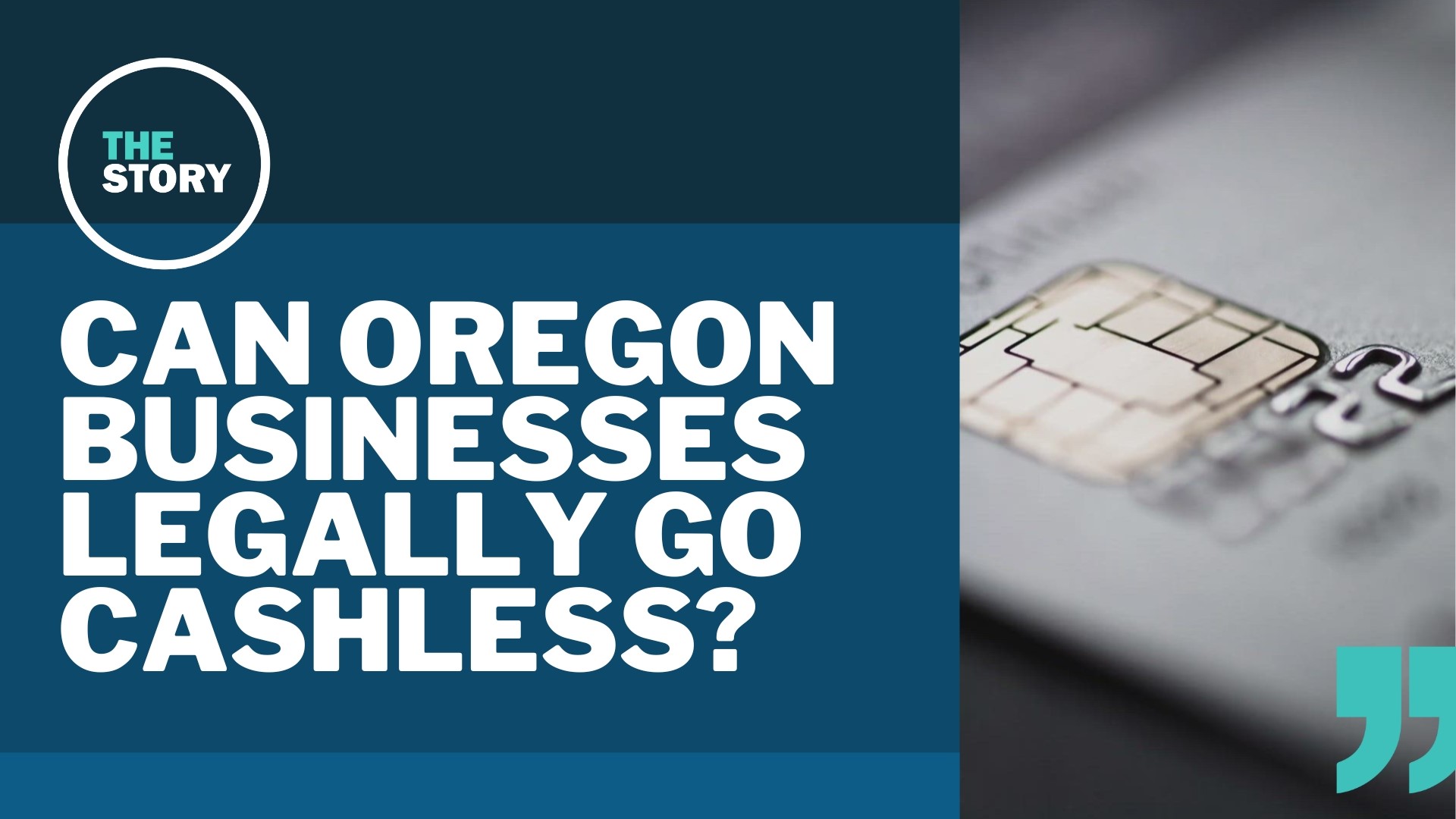PORTLAND, Ore. — A KGW viewer reached out with a question about cash payments in Oregon, recalling a recent trip to downtown Portland. They said they went to a downtown sandwich shop for lunch, but were frustrated to find a sign on the door that said the business only accepted credit or debit cards for payment, and no cash.
The viewer wondered whether no-cash restrictions are legal, given that Oregon passed a bill banning the practice.
THE QUESTION
Are Oregon businesses required to accept cash as payment?
THE SOURCES
THE ANSWER
Yes, Oregon businesses are required to accept cash, and cannot restrict their customers solely to digital or card transactions. There are exceptions in some circumstances, but the rule applies to most commercial businesses in the state.
WHAT WE FOUND
U.S. federal law does not require private businesses to accept cash, but the U.S. Federal Reserve's FAQ on the subject says businesses are required to follow state laws if a state chooses to mandate cash as an option.
Oregon did just that when the state legislature passed Senate Bill 1565 last year. The bill generally prohibits businesses from refusing to accept United States currency — including coins — as payment for transactions. The text of the bill specifies that it takes effect 90 days after the end of the session, which means the rule has been in place since June of last year.
The law applies to any "place of public accommodation offering goods or services" in the state. Oregon law defines the term "place of public accommodation" to mean places that are open to the public, and the final version of the bill does specify that member-only stores such as Costco are exceptions — but most other stores and restaurants fit the definition.
The bill also includes a lengthy list of situational exceptions, such as allowing businesses to refuse bills larger than $20 or allowing them to refuse more than $100 in coins. There are also some other category exceptions, such as online or over-the-phone purchases, or transactions where the buyer has to put down a deposit or sign a rental or lease agreement.
The bill also specifies that some big event businesses like concert venues and sports arenas can use alternate on-site payment systems, such as tokens or wristbands, if they give customers a way to convert cash into the system.
Mt. Hood Meadows appears to be making that kind of switch; the ski resort announced earlier this month that it would stop accepting cash for the 2023-24 season, but added that it will have "reverse ATMs" where customers can use cash to load value onto visa-branded debit cards.
The Oregon branch of the National Federation of Independent Business filed testimony in opposition to the bill during the 2022 session, declaring that the exceptions didn't go far enough and the rule would create safety risks or operational difficulties for some businesses. The organization acknowledged the passage of the bill and outlined what it would mean for Oregon businesses in its post-session newsletter last year, while continuing to express opposition.
SB 1565 directs consumers to file complaints about violations of the rule with the Oregon Bureau of Labor and Industries, following the procedure outlined in ORS 659A.820, which pertains to discrimination against consumers.
Side note: TriMet made headlines when it temporarily stopped accepting cash on Portland buses during the early weeks of the COVID-19 pandemic, billing it as a safety measure for drivers, but the policy was rolled back later in 2020, more than a year before SB 1565 was introduced.
Got a question or a story about Portland or Oregon that you'd like us to VERIFY? Drop us a line at verify@kgw.com.

